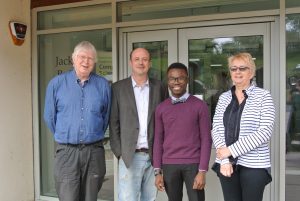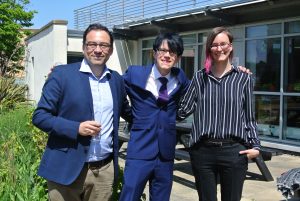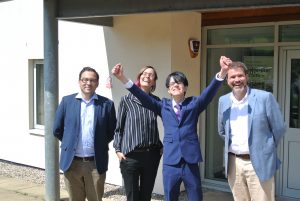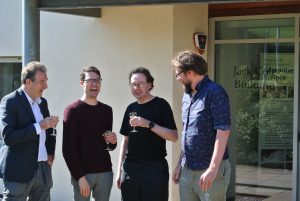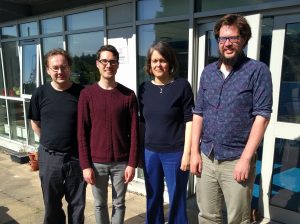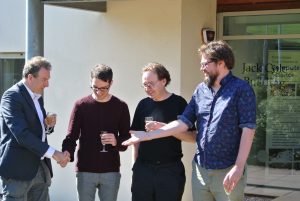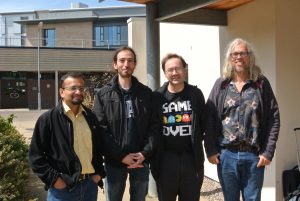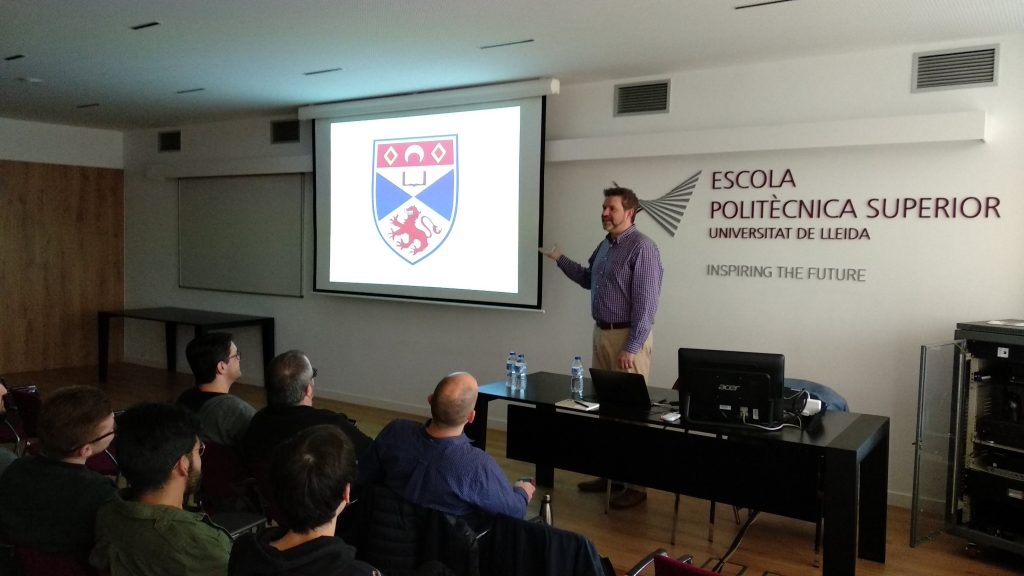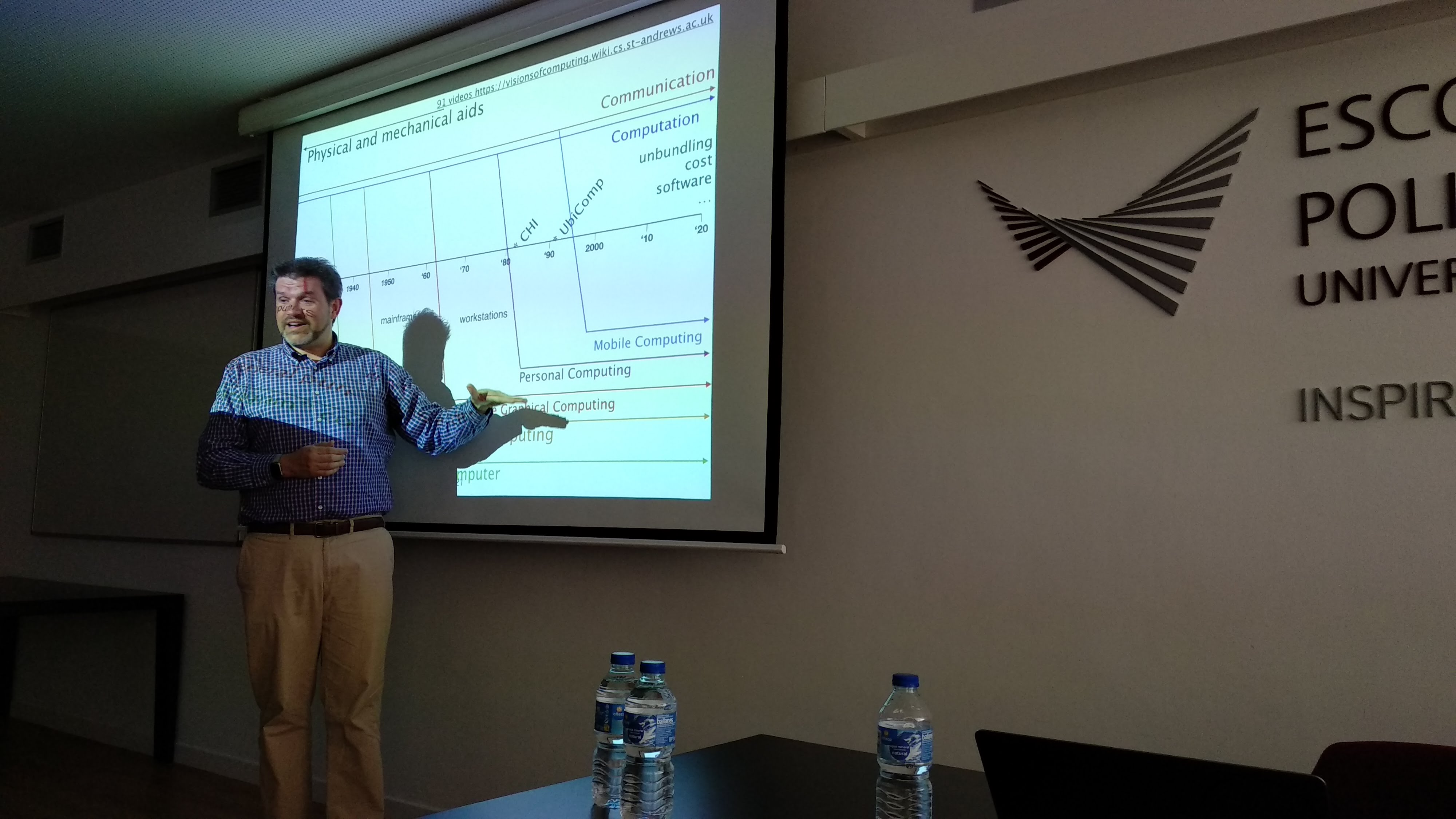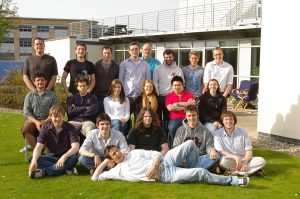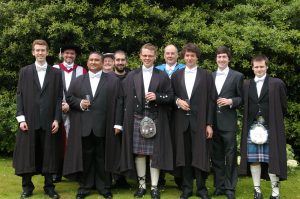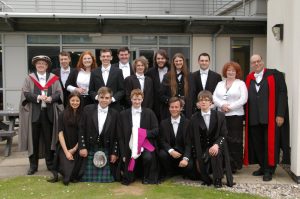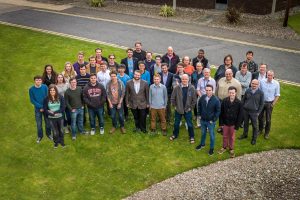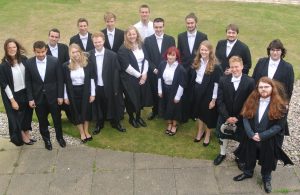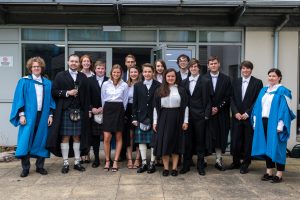Technician David Letham entered the raffle for sponsorship of Berwick Rangers and won first prize!
“Berwick Rangers are excited to confirm that Berwick-based Northern Soul Kitchen will be the primary shirt sponsor for the 2018/19 season.
David Letham, founder of St Andrews Berwick Rangers Supporters and winner of the front of shirt sponsor prize at our sponsor draw on Saturday evening, has opted to donate the shirt sponsorship to the local community project: “Rather than putting my Supporters club on the front of the home shirt, I’ve asked Northern Soul Kitchen of Berwick if they would like the sponsorship and they were delighted to accept. It’s a good community initiative that is just starting up and I’m happy to help them by donating this sponsorship and hopefully forging a new link between Berwick Rangers and the local community in the process.”
Northern Soul Kitchen are a community project on West Street, Berwick, turning unsold food into affordable and delicious meals for people. The food is offered on a Pay-As-You-Feel (PAYF) basis meaning people can pay what they think the food is worth, donate whatever amount they can afford or even volunteer their time and skills to pay for a meal – all have their value.
Everyone knows that there is a nationwide problem with perfectly edible food being chucked away. Northern Soul Kitchen rescue this food before that happens and use it to make healthy meals for everyone. The kitchen will work to help a number of local issues, including food waste, food poverty, social exclusion and a misunderstanding about nutrition. As well as serving meals, Northern Soul Kitchen will be offering workshops and events for people to learn more about eating healthily on a budget.
Harriet Grecian, co-founder of Northern Soul Kitchen, is delighted to have been offered the primary shirt sponsorship prize: “We are incredibly grateful to David Letham and Berwick Rangers for this sponsorship opportunity. As a community project, it means a great deal to have partnerships with local organisations, especially one as significant as the local team. We’re looking forward to a great season for Berwick Rangers and can’t wait to come and see a game at Shielfield!”
The club are looking forward to working with Northern Soul Kitchen, with a number of exciting ideas already being discussed for the next 12 months. You can learn more about Northern Soul Kitchen here.”



